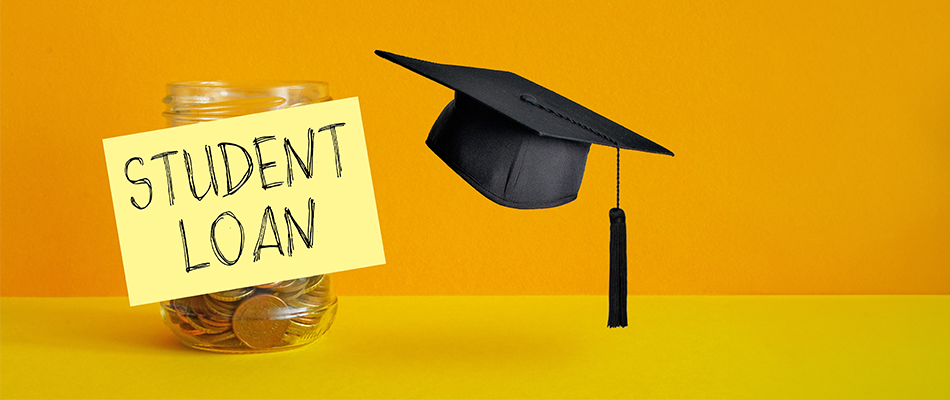Higher education, such as undergraduate and postgraduate programmes from accredited institutes, can be a significant financial commitment. However, they are recommended for a stable and well-paying career. Student loans enable individuals to pursue their dream of obtaining a higher education.
These loans can be used to complete higher education in South African or foreign institutes. They can help cover the cost of tuition, study materials, and accommodation. The duration and repayment conditions vary depending on the loan provider and whether the applicant is employed or unemployed.
This article will explore the various types of loans for students who are unemployed, their eligibility, and the application process.
Table of Contents
- What are the Types of Loans Available for Unemployed Students?
- How Do Student Loans Work for Unemployed Students?
- What are the Eligibility Criteria for Unemployed Students?
- How to Apply for a Student Loan as an Unemployed Student?
- Government Assistance and Bursaries
- Conclusion
- FAQs on Loans for Students who are Unemployed
What are the Types of Loans Available for Unemployed Students?
As the cost of higher education increases, it is becoming increasingly common for students to apply for a student loan. This allows academically gifted students from underprivileged backgrounds to pursue higher education, and it is another way for them to take charge of their education.
The criteria for loans and repayment plans vary depending on the loan provider in South Africa. When unemployed students apply for a loan, they can apply with surety, which means a guarantor, such as a parent or guardian, co-signs the application form. However, some banks offer loans without surety for unemployed students.
These are options available for loans for students who are unemployed.
- Government-Sponsored Student Loans: In South Africa, the National Student Financial Aid Scheme (NSFAS) offers loans to students with a combined household income not exceeding R350,000 per year. Students begin repayment once they earn R30,000 annually.
- Private Student Loans: Private loan providers, such as FUNDI, offer various loan types for students. Unemployed students can apply for loans as long as they have a guarantor co-sign the loan documents.
- Bank-Sponsored Loans: Several banks in South Africa offer these loans, which help to cover the cost of tuition, accommodation, books, etc., needed to complete the higher education programme. It is easier to receive loans for students who are unemployed when a guarantor co-signs the application.
How Do Student Loans Work for Unemployed Students?
Unemployed students can apply for a student loan in South Africa to fulfil their dreams of pursuing higher education. Many loan providers require a guarantor to co-sign the application, referred to as a loan with surety. The guarantor is responsible for paying the monthly interest on the loan.
Some providers, such as NSFAS and banks, such as Standard Bank, offer loans for students who are unemployed where they can apply without a guarantor. These are referred to as student loans without surety. Applicants must meet the loan criteria before the provider approves them.
The table below highlights the differences in loans for students who are unemployed with and without surety.
|
Criteria |
With Surety |
Without Surety |
|
Eligibility |
It is easier to qualify due to the guarantor |
Harder to qualify |
|
Programme/University |
Students are free to pick the programme of their choice |
It needs to be picked from an approved list |
|
Interest Rate |
Generally lower |
Usually higher due to the risk to the loan provider. |
|
Repayment |
The guarantor pays monthly interest payments. |
Monthly interest payments are added to the loan amount. |
|
Loan Recovery |
Easier for lenders to recover funds. |
More problematic for lenders to recover funds. |
|
Repayment Terms |
Usually within 6 months of having completed the programme. |
It can vary depending on the provider. |
What are the Eligibility Criteria for Unemployed Students?
When a loan provider approves a loan, they have established that the student can return the loan amount once they complete their higher education. However, most providers require monthly interest and fees to be paid while the student studies.
Since unemployed students cannot make payments, most loans for students who are unemployed in South Africa require a guarantor to sign the loan application if the student is unemployed.
This is the provider’s safety net, ensuring that monthly interest is paid while the student completes their programme. The guarantor must meet the minimum income requirements set by the loan provider.
Students must submit a loan application with the required documents before being considered for funding. The requirements for applying for a student loan with or without surety are given below.
Loans for Students who are Unemployed With Surety:
- Must be a South African citizen
- Admitted into an accredited programme.
- The guarantor must have a minimum monthly income to ensure monthly interest and fees can be paid.
Loans for Students who are Unemployed Without Surety:
- Must be a South African citizen
- Admitted to a participating university
- The course must be on the list of approved courses
- Gross household income should be below R600,000 for Standard Bank and R350,00 for NSFAS.
- You need to create an account with the provider.
How to Apply for a Student Loan as an Unemployed Student?
Before applying for loans for unemployed students, the applicant and the guarantor must do some research. The first step is to decide if you are applying for a loan with or without surety since this will mean different providers, requirements, and documents.
Before finalising a lender, applicants should also evaluate the various interest rates and payment plans and choose a provider that best meets their requirements. Students should also remember that banks might conduct further checks for loan history or credit score.
Students should follow these steps when applying for student loans for unemployed students:
- Research the lenders: Students can research government lenders such as NSFAS, private banks, or loan providers such as FUNDI.
- Check eligibility: Once the applicant has identified the lender that best meets their needs, they must ensure they meet the criteria.
- Collect necessary documents: Review the list of documents required by the selected loan provider and prepare copies to be submitted. These will include proof of citizenship, admission letter, income proof, etc.
- Fill out and submit the application: Once students have everything in hand, they can fill out the loan application for unemployed students either online or in person.
Students need to fill out the application form correctly and submit all the required documents so that there is no delay in loan dispersal. NSFAS applications need to be submitted before the application deadline. These are the documents required by loan providers when applying for loans for students who are unemployed:
The documents for the guarantor are only required when applying for a loan with surety.
- Proof of residence not older than 3 months (student and guarantor)
- Payslip for 3 months (guarantor)
- Acceptance letter from the institute
- Registration letter from the institute (for transfer of funds)
- Proof of expenses, including tuition, books, and accommodation
- Some might require the latest academic results
Government Assistance and Bursaries
Government loans and other financial assistance are created to push for equality in education. The primary purpose is to make it possible for academically deserving students from lower-income households to pursue higher education. These loans usually carry a lower interest rate, and payments only begin once students are employed and have reached a certain annual income threshold.
In addition to loans, government bursaries are also available to students. Compared to loans, bursaries are financial awards that do not need to be repaid. They can be awarded once or renewed over several years if the applicant needs academic requirements.
Some of the most well-known government assistance programmes in South Africa are:
- National Student Financial Aid Scheme (NSFAS): This is a student-centred bursary and loan provider that operates under the Department of Higher Education and Training (DHET). NSFAS awards bursaries to students applying for courses in TVET colleges and offers loans for students who are unemployed and are attending public universities in South Africa.
- Other government programmes: In addition to NSFAS, the Funza Lushaka Bursary Programme is another initiative by the South African government to promote teaching in public schools. This programme is primarily for students who wish to receive a teaching qualification. Students who are awarded the bursary must teach at a public school for the same number of years as their bursary.
Conclusion
Student loans help ease the burden of pursuing a higher education programme in South Africa. Applicants can apply to one of the many loan providers who can help cover the cost of tuition, accommodation, and study materials. Student loans are available for full-time and part-time students. Most loans for students who are unemployed require a guarantor to sign the application, and the guarantor is responsible for payment of monthly fees to the provider.
Each provider has different eligibility criteria, interest rates, and repayment plans. When choosing loans for students who are unemployed, applicants should research and pick a loan that works best for them.
Check out Regenesys for a complete list of our higher education programmes.
FAQs on Loans for Students who are Unemployed
How do student loans work for unemployed students?
Unemployed students can apply for loans if a guarantor signs the application with them. Some lenders also offer loans without surety, though the eligibility criteria may differ.
What are the eligibility criteria for student loans with surety?
Students must be South African citizens, accepted into an accredited programme, and the guarantor must meet minimum income requirements.
What documents are needed to apply for a student loan?
Required documents typically include proof of citizenship, an admission letter, proof of residence, and, for loans with surety, documents from the guarantor, such as payslips.
How can students apply for a student loan?
Students should research lenders, check eligibility, gather necessary documents, and submit applications online or in person.
Are there loans for students who are unemployed and do not have a guarantor?
Students can apply for student loans without surety if they do not have a guarantor who can sign the application with them.
What is the National Student Financial Aid Scheme (NSFAS)?
NSFAS provides loans and bursaries to eligible low-income students, allowing them to cover tuition and living expenses.






